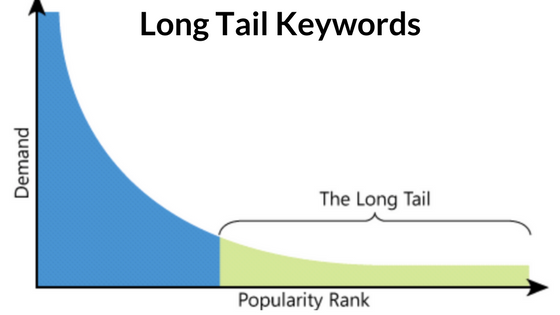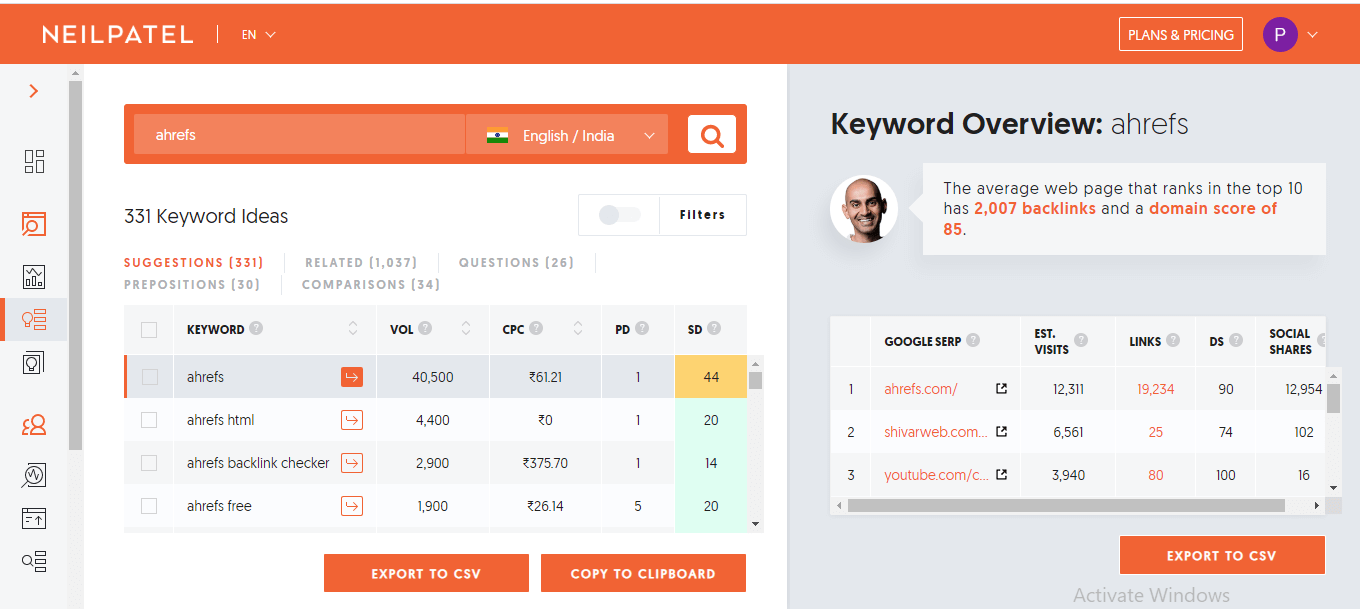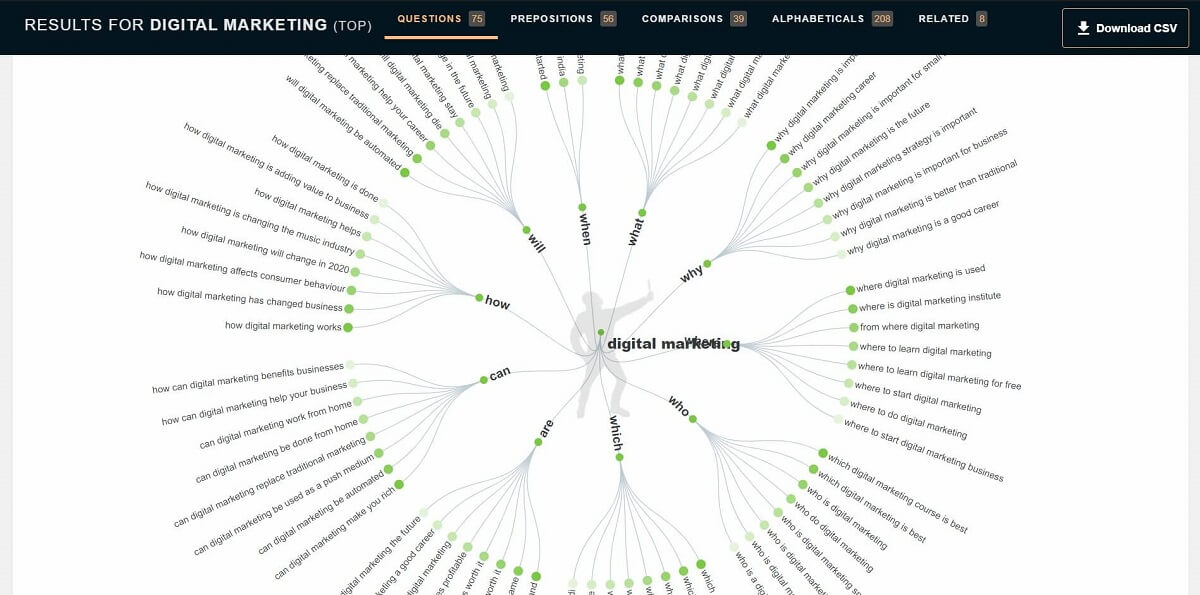In the dynamic world of Search Engine Optimization (SEO), the significance of long-tail keywords cannot be overstated. These are specific phrases, typically longer than three words, highly relevant to particular niches.
Unlike their short-tail counterparts, long-tail keywords are less popular in search volumes but excel in driving targeted, high-conversion traffic. As search behaviours evolve, especially with the rise of voice search, long-tail queries become increasingly crucial. They cater to more conversational search patterns, reflecting the searcher’s specific intent and needs.

The Short-Term Advantages of Long-Tail Keywords
Long-tail keywords emerge as a potent tool for short-term SEO wins. Their specificity translates to lower competition, making it easier for websites to rank higher quickly. This is particularly beneficial for new or less authoritative sites struggling to compete for high-volume keywords.
Additionally, long-tail keywords often boast higher conversion rates in an SEO campaign. Their precise nature aligns closely with the searcher’s requirements, making the generated traffic more likely to convert. For instance, a phrase like “stainless steel, double-wide toaster for bagels” is more likely to attract users who are further along in the buying process than a generic term like “toasters”.
Bridging the SEO Lag with Long-Tail Keywords
‘SEO lag’ refers to the time taken for a website to build credibility and improve its ranking for competitive keywords. Long-tail keywords serve as a bridge during this period, providing visibility and driving traffic in the short term.
By targeting these keywords, websites can gradually build their reputation and authority, which is essential for ranking for more competitive terms. Implementing a long-tail keyword strategy can result in early gains in traffic and visibility, setting a solid foundation for long-term SEO success.
Strategies for Identifying and Targeting Long-Tail Keywords

The success of a long-tail keyword strategy hinges on identifying the right keywords. Tools like Google’s auto-suggest, Answer the Public, and Ubersuggest offer valuable insights into long-tail phrases relevant to your niche.

Starting with a list of seed keywords, reflecting how customers describe your products or services, can guide you to relevant long-tail phrases. Monitoring related searches and suggestions at the bottom of Google’s search results can also uncover valuable long-tail opportunities.
These keywords should be closely aligned with user intent and business objectives to ensure they drive relevant traffic and meet specific marketing goals.
Content Creation and Optimization Using Long-Tail Keywords
Once the right long-tail keywords are identified, the next step is to create and optimize content around them. The focus should be on relevance and adding value, rather than merely integrating keywords into content.
Google’s helpful content guidelines discourage a search-engine-first approach, emphasizing the need for meaningful and user-centric content. Each piece should address specific user queries and challenges, providing clear and comprehensive answers. This approach not only enhances user experience but also boosts the chances of ranking higher in search results. It’s important to avoid overloading a single page with too many long-tail keywords; instead, distribute them thoughtfully across various pieces of content.
Measuring Success and Adjusting Strategy
Tracking the performance of long-tail keywords is crucial in refining and improving your SEO strategy. Tools like Google Search Console can provide insights into how these keywords are performing in terms of traffic and rankings. This data can reveal unexpected search phrases, offering opportunities for further content optimization.
Continuous testing and learning are essential to keep the content relevant and effective. If a particular long-tail keyword isn’t yielding the expected results, analysing and adjusting the content can lead to better alignment with user intent and improved performance.
Case Studies: Success Stories with Long-Tail Keywords
Case studies offer tangible evidence of the effectiveness of long-tail keywords. For instance, Amore Coffee, a small coffee machine rental company in the UK, successfully utilized long-tail keywords to gain visibility and attract a specific audience. By focusing on niche-specific phrases, they could rank higher and faster, capturing a targeted market segment.
Another example is Express Doors Direct, which clustered related articles around the theme of internal doors. This strategic use of long-tail keywords not only improved their site’s SEO but also enhanced the user journey, demonstrating the power of a well-executed long-tail strategy.
Long-Tail Keywords for E-commerce and Voice Search
E-commerce websites can significantly benefit from long-tail keywords. These keywords, being more descriptive, align closely with the specific queries of potential buyers. For instance, a term like “green running shoes for women” indicates a user further along in the buyer’s journey compared to a more generic search like “running shoes”.
By targeting such descriptive long-tail keywords, e-commerce sites can attract more qualified leads, likely to convert. Additionally, long-tail keywords are becoming increasingly important in voice search. As voice-assisted devices like Siri and Alexa gain popularity, the use of long-tail keywords in queries has seen a notable increase, making them an essential element in optimizing for voice search.
Commercial Intent and Landing Pages Optimization
Understanding and leveraging the commercial intent behind long-tail keywords is crucial, especially for e-commerce. Keywords with commercial intent, such as “buy now” or product-specific terms, can guide the creation of more effective product pages.
Aligning the content of landing pages with the intent of these keywords ensures that users find exactly what they’re looking for, thereby improving the conversion rates and the overall user experience. This alignment is also beneficial for SEO, as it helps search engines better understand and rank the content.
The Benefits of Long-Tail Keywords in SEO
Long-tail keywords offer a multitude of benefits in SEO. Their specificity means they are more targeted and have lower competition, making them easier to rank for. They also have higher conversion rates, as they cater to users with more specific needs.
Additionally, long-tail keywords can quickly improve the ranking of pages and optimize both SEO and content strategies. They allow for the creation of more personalized content, meeting the high intent of users. Furthermore, they are becoming increasingly popular in AI-assisted voice searches, making them a vital component of future SEO trends.
The Future of Long-Tail Keywords in SEO
In conclusion, long-tail keywords are an indispensable tool in an SEO strategist’s arsenal. They offer short-term wins by bridging the gap during the SEO lag period and help in building long-term credibility for higher competition keywords.
By focusing on the specifics, long-tail keywords provide targeted traffic, higher conversion rates, and a quicker path to ranking success. As search patterns continue to evolve, particularly with the rise of voice search, the importance of long-tail keywords is only set to increase.
Embracing a long-tail keyword strategy is not just a current necessity but a step towards future-proofing your SEO efforts.






